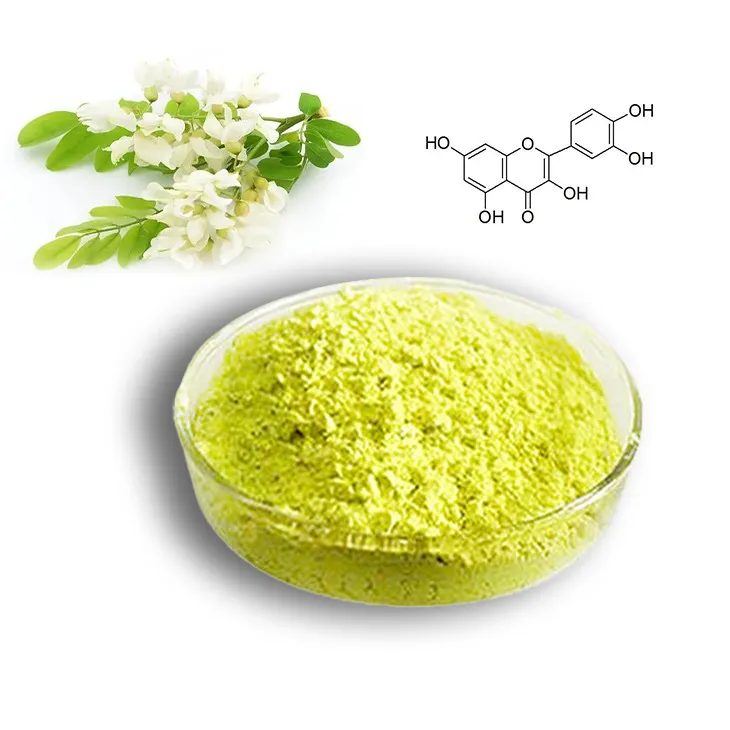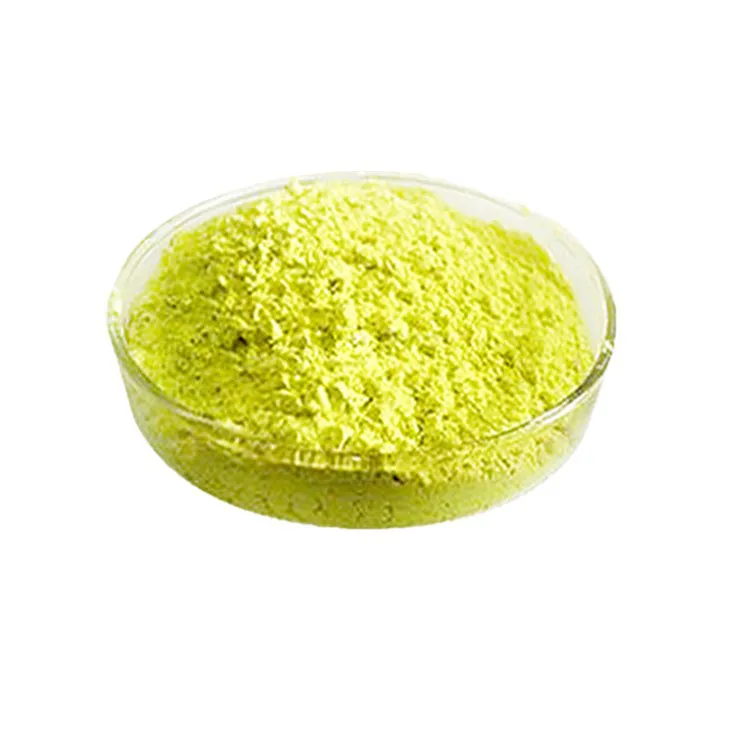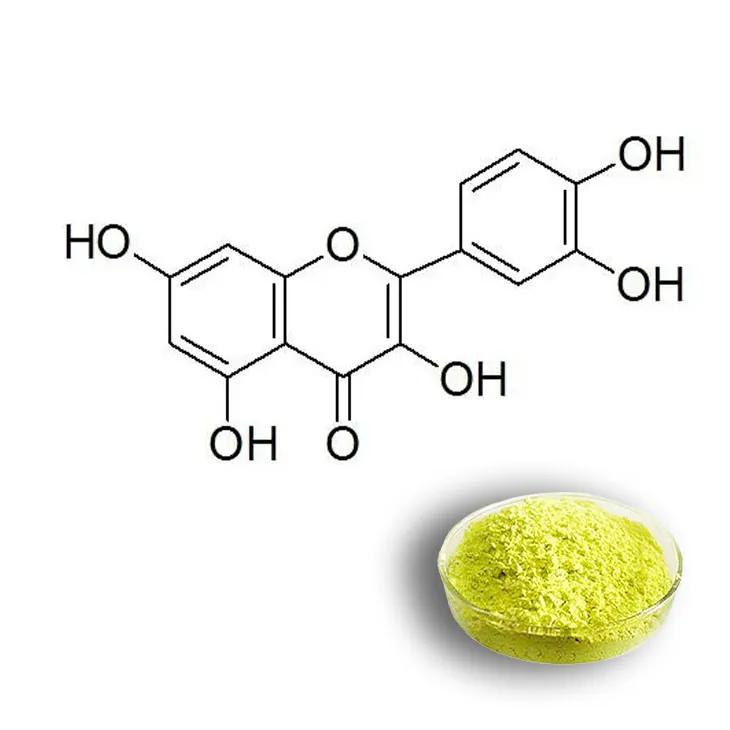- 0086-571-85302990
- sales@greenskybio.com
Quercetin - 100% Natural.
2024-12-10

What is Quercetin?
Quercetin is a flavonoid, which is a type of natural compound that is abundantly present in numerous plants. It is part of a large group of plant - derived substances that have various biological activities. Flavonoids, in general, are known for their potential health - promoting effects, and Quercetin is no exception.

Occurrence in Nature
Quercetin is widely distributed in the plant kingdom. It can be found in significant amounts in common foods that we consume daily.
Onions
Onions are a rich source of quercetin. Whether it is the common yellow onions, red onions, or shallots, they all contain this valuable flavonoid. The outer layers of the onion tend to have a higher concentration of quercetin.
Apples
Apples, especially the skin, are another great source of quercetin. This is one of the reasons why consuming whole apples, rather than just the flesh, is beneficial for health. Different apple varieties may have slightly different quercetin contents, but overall, apples are a convenient and delicious way to get some quercetin in your diet.
Berries
Berries such as blueberries, strawberries, and raspberries also contain quercetin. These colorful and antioxidant - rich fruits are not only tasty but also contribute to the intake of quercetin. For example, blueberries are known for their high antioxidant content, and quercetin is one of the important components contributing to their health - promoting properties.
Green Tea
Green tea is renowned for its health benefits, and quercetin is one of the compounds responsible for this. The flavonoids in green tea, including quercetin, are released when the tea is brewed. Drinking green tea regularly can be a great way to incorporate quercetin into your daily routine.

Antioxidant Properties
One of the most important properties of quercetin is its role as a powerful antioxidant. Antioxidants are substances that can neutralize free radicals in the body.
Free radicals are highly reactive and unstable molecules that are constantly formed during normal metabolic processes in the body. However, excessive free radicals can cause a great deal of harm. They can damage cells, proteins, and DNA, which are the building blocks of the body. This damage is associated with a wide range of diseases, including heart disease, cancer, and neurodegenerative disorders.
Quercetin can donate electrons to free radicals, thereby stabilizing them and preventing them from causing further damage. By doing so, it helps to maintain the integrity of cells and reduce the risk of various diseases associated with oxidative stress.

Anti - Inflammatory Effects
Chronic inflammation is a major underlying factor in many health problems. Quercetin has been studied extensively for its anti - inflammatory properties.
-
In heart disease, inflammation in the blood vessels can lead to the development of atherosclerotic plaques. These plaques can narrow the arteries and increase the risk of heart attacks and strokes. Quercetin may help to reduce the inflammation in the blood vessels, thereby potentially reducing the risk of heart disease.
-
Arthritis is a condition characterized by inflammation in the joints. The anti - inflammatory action of quercetin may provide relief for arthritis sufferers. It can help to reduce pain, swelling, and stiffness in the joints by modulating the inflammatory response.
-
Certain cancers are also associated with chronic inflammation. By reducing inflammation, quercetin may play a role in preventing the development and progression of cancer. However, it should be noted that more research is needed to fully understand its role in cancer prevention and treatment.

Immune System Support
Quercetin may also have beneficial effects on the immune system. It can enhance the function of immune cells, which are the body's defense against infections.
-
One way quercetin may support the immune system is by increasing the activity of white blood cells. White blood cells are responsible for identifying and destroying foreign invaders such as bacteria, viruses, and fungi. By enhancing the activity of white blood cells, quercetin can potentially help the body fight off infections more effectively.
-
It may also modulate the immune response. Sometimes, an overactive immune response can cause harm to the body, as in the case of autoimmune diseases. Quercetin may help to balance the immune response, preventing it from becoming too aggressive or too weak.
Anti - Cancer Potential
Research has suggested that quercetin may have anti - cancer properties. However, it is important to note that this area of research is still in its early stages, and more studies are needed to fully understand its potential.
-
Quercetin can interfere with the growth and spread of cancer cells. It may do this by blocking certain signaling pathways that are involved in cell growth and division. For example, it can inhibit the activity of enzymes that are necessary for cancer cells to multiply.
-
It may also induce apoptosis, which is a process of programmed cell death. Cancer cells often have abnormal mechanisms that prevent them from undergoing apoptosis. Quercetin may be able to trigger this process in cancer cells, thereby eliminating them.
-
Another way quercetin may act against cancer is by inhibiting angiogenesis. Angiogenesis is the process by which new blood vessels are formed. Cancer cells need a blood supply to grow and spread. By inhibiting angiogenesis, quercetin can starve cancer cells of the nutrients and oxygen they need to survive.
Conclusion
In conclusion, quercetin is a 100% natural compound that offers a wide range of potential health benefits. Its antioxidant, anti - inflammatory, immune - enhancing, and potential anti - cancer properties make it an interesting compound for further research and a valuable addition to a healthy diet. While more studies are needed to fully understand its mechanisms of action and its potential in treating and preventing diseases, incorporating foods rich in quercetin into your diet, such as onions, apples, berries, and green tea, can be a simple and natural way to promote health.
FAQ:
What is quercetin?
Quercetin is a flavonoid that occurs naturally in many plants. It is a natural compound with a wide range of potential health benefits.
Where can quercetin be found?
Quercetin can be found in high amounts in foods like onions, apples, berries, and green tea.
What are the health benefits of quercetin?
Quercetin has several health benefits. It is a powerful antioxidant that can combat free radicals in the body. It also has anti - inflammatory properties, which may help prevent or manage conditions related to chronic inflammation such as heart disease, arthritis, and certain cancers. Additionally, it may enhance the function of immune cells and potentially has anti - cancer properties, although more research is needed in this area.
How does quercetin act as an antioxidant?
As an antioxidant, quercetin can combat free radicals in the body. Free radicals are unstable molecules that can cause damage to cells and are associated with various diseases and the aging process. Quercetin neutralizes these free radicals, reducing their harmful effects.
How does quercetin affect the immune system?
Quercetin may have beneficial effects on the immune system. It can enhance the function of immune cells, which may potentially help the body fight off infections more effectively.
Related literature
- Quercetin: A Promising Natural Compound for Health Promotion"
- "The Role of Quercetin in Plant - Based Diets and Human Health"
- "Quercetin: Antioxidant, Anti - Inflammatory and Anti - Cancer Properties"
- ▶ Hesperidin
- ▶ Citrus Bioflavonoids
- ▶ Plant Extract
- ▶ lycopene
- ▶ Diosmin
- ▶ Grape seed extract
- ▶ Sea buckthorn Juice Powder
- ▶ Fruit Juice Powder
- ▶ Hops Extract
- ▶ Artichoke Extract
- ▶ Mushroom extract
- ▶ Astaxanthin
- ▶ Green Tea Extract
- ▶ Curcumin
- ▶ Horse Chestnut Extract
- ▶ Other Product
- ▶ Boswellia Serrata Extract
- ▶ Resveratrol
- ▶ Marigold Extract
- ▶ Grape Leaf Extract
- ▶ New Product
- ▶ Aminolevulinic acid
- ▶ Cranberry Extract
- ▶ Red Yeast Rice
- ▶ Red Wine Extract
-
Scutellaria Extract
2024-12-10
-
Acerola Extract
2024-12-10
-
Lemon Balm Extract
2024-12-10
-
Horse Chestnut Extract
2024-12-10
-
Soy Extract
2024-12-10
-
Citrus Aurantii Extract
2024-12-10
-
Natural grape seed extract
2024-12-10
-
Alfalfa Meal
2024-12-10
-
Fenugreek Extract Powder
2024-12-10
-
Longan Extract
2024-12-10





















